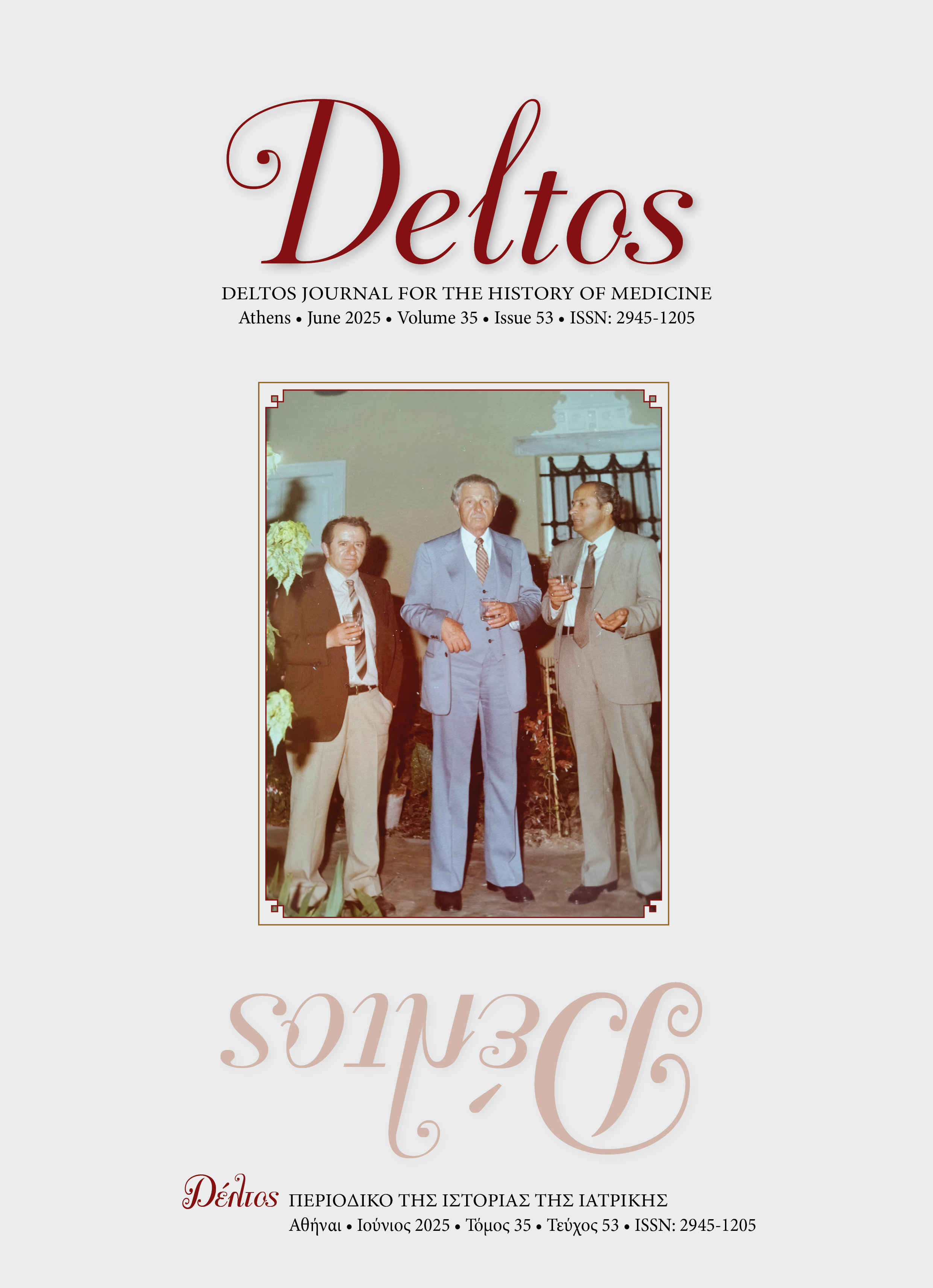Kírikos Herétis - A Greek Physician and Scholar of the European Enlightenment

Abstract
Kírikos Herétis (Κήρυκος Χαιρέτης) (1756-1830) studied Medicine in Padua, at the end of the 18th century. His Dissertation entitled “Manual on the economy of animals - The vital functions in humans and other living creatures” concerned the function of the respiratory, digestive and cardiovascular systems, and it is considered the first book on Physiology in the Greek language. Herétis’ belief that water is the best remedy, originates from Hippocratic texts and from Friedrich Hoffmann’s Dissertation, highlighting a shift toward minimal pharmacotherapy and the use of natural therapeutic means. Moreover, the Hippocratic emphasis on the interaction between the natural environment and the physical and spiritual development of humans can be detected also in the writings of Herétis, as well as of his great-grandson, Pericles Yannópoulos, an intellectual and writer at the turn of the 20th century. The Dissertation of Herétis is an interesting synthesis of Hippocratic and Platonic philosophic views. The Platonic duality “Decay-Genesis” from the dialogue “Timaeus” contrasts with Hippocratic-Anaxagorean notions of humoralbalance, while emphasising blood’s primacy over other bodily humors. By merging classical traditions with contemporary medical thought, Herétis exemplifies the scientific trends of the European Enlightenment, advocating water as a universal remedy, with the claim that it improves blood fluidity.
Article Details
- How to Cite
-
Chrysafi, A., & Marselos, M. (2025). Kírikos Herétis - A Greek Physician and Scholar of the European Enlightenment. DELTOS, 35(53), 24–32. https://doi.org/10.12681/dj.42269
- Issue
- Vol. 35 No. 53 (2025)
- Section
- Research Papers

This work is licensed under a Creative Commons Attribution-NonCommercial 4.0 International License.


